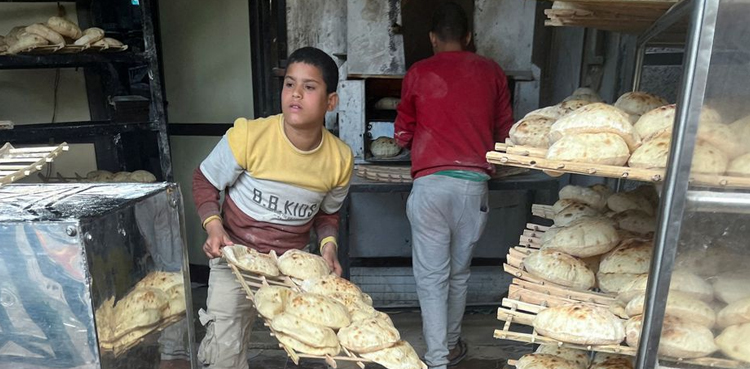
Egypt committed to a flexible currency, a greater role for the private sector and a range of monetary and fiscal reforms when it agreed to a $3 billion financial support package with the International Monetary Fund, according to an IMF staff report released on Tuesday.
In a letter of intent to the IMF dated Nov. 30, the government said it sought the support after the war in Ukraine increased existing vulnerabilities amid tighter global financial conditions and higher commodity prices.
Among its pledges is one to slow investment in public projects, including national projects, so as to reduce inflation and conserve foreign currency, without specifying where cuts might fall.
The government has been on an infrastructure spending spree over the last few years, building an extensive network of roads and bridges as well as new cities. It has also started work on high-speed railways and a nuclear power plant, each with a cost of tens of billions of dollars.
The IMF board of directors approved the 46-month Extended Fund Facility (EFF) on Dec. 17.
Under the letter of intent, Egypt said it would allow most fuel product prices to rise until they were in line with the country’s fuel index mechanism to make up for a slowdown in such increases over the last fiscal year.
It pledged not to intervene in foreign currency markets to stabilise or guarantee the exchange rate, except in cases of excessive volatility. Egypt’s pound has been allowed to fluctuate more than before since its third devaluation in less than a year last week.
Egypt also agreed to make its monetary policy more efficient by giving up most of its subsidised lending schemes and ensuring that interbank interest rates remain “steadfastly tied” to the central bank’s interest rate corridor.
Under the facility, the IMF will provide Egypt with about $700 million in the fiscal year that ends in June.
The World Bank will cover $1.1 billion of the year’s remaining $5.04 billion financing gap, the Asian Infrastructure Investment Bank $400 million, the African Development Bank $300 million, the Arab Monetary Fund $300 million, the China Development Bank $1.0 billion and public asset sales $2.0 billion, the letter said.
Egypt said it had secured assurances that $28 billion in deposits by Gulf states in the Egyptian central bank would not mature before September 2026, and would not be used to buy equities or debt.
from International News Today - Breaking News, US News, World News https://ift.tt/kLWU0KP
